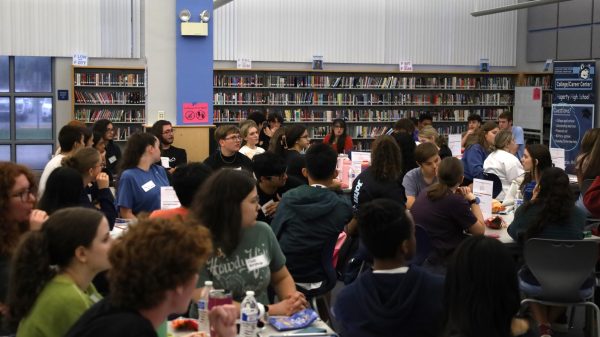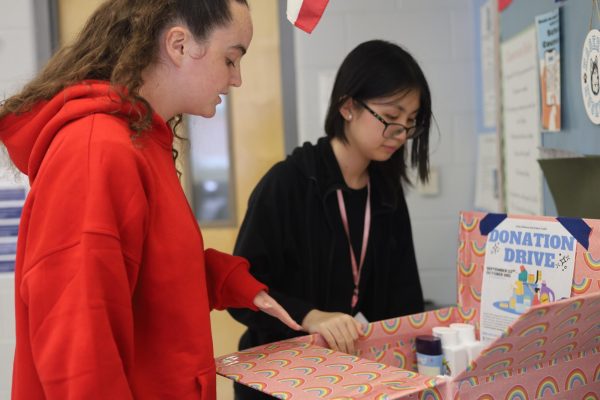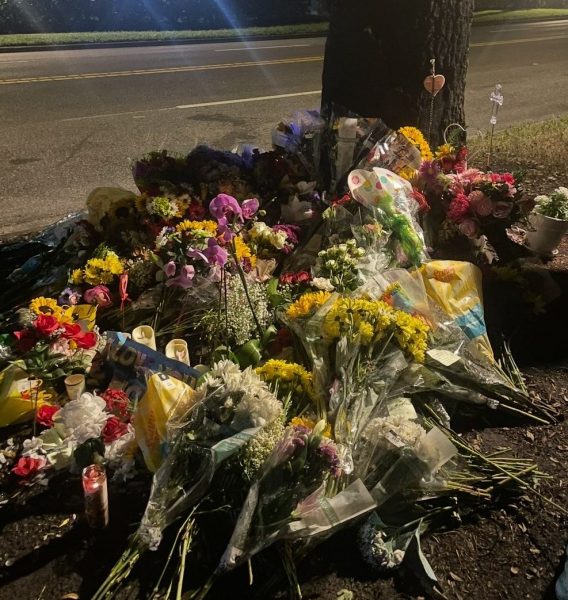Full-time mental health counselor now on campus
photo by James Lopez
James Bartlett ends the day by looking through emails and preparing for the following day.
As a kid, James Bartlett loved socializing and connecting with other people, but no one was there to help him process his emotions. This would continue through his adolescence, and he realized how important it was to have a listening ear. When he reached college, he decided to become that person. Today, Bartlett works as a full-time counselor, looking to make it easier for students to talk about mental health.
Two years of COVID has led to an increase in mental health issues, which has only continued post COVID. According to the CDC 1-in-5 Americans will experience a mental illness in a given year, leaving mental health as a big priority in Seminole County. Now, every school has a full-time mental health counselor.
“This year is the first year that we were able to do a mental health counselor five days a week at high schools which is awesome,” Bartlett said.
Bartlett only worked part-time at Hagerty last year, but now on campus the entire week, he offers more opportunities for students to get help that they may need. As a district mental health counselor, Bartlett wants to create a comfortable space within his office for his students to better their communication and allow students to feel safe.
“I want to know what their interests are, what are they like,” Bartlett said. “I want students to know that by meeting me, I try to make it cool, calm and relaxed.”
There is not a one-size-fits-all plan that Bartlett has in place, since students deal with a variety of different issues. Instead, he lets the student guide him on what goals they want to achieve so he can give them the best help possible.
“Some students are coming to me and they’re having anxiety, they’re having daily panic attacks, everything like that. So we kind of see where it’s at, and then we formulate those goals together,” Bartlett said.
As the school year goes on, many students will begin to experience mental health issues, such as anxiety, burnout and depression. These issues are usually tied to the classroom, as homework, studying for tests and extracurriculars can be stressful to many.
“It’s big for me to destigmatize mental health, especially among the male student body, where there is very much a stigma with mental health and pursuing mental health,” Bartlett said. “So seeing that, I’m trying to get that out there and normalize mental health.”
For many, discussing mental health can be difficult due to the “weak” stigma surrounding anxiety and depression. In recent years, the negative connotation has started to disappear, and Bartlett intends to follow that trend by working with the PTSA and pushing the importance of mental health for everyone, not just students.
“Last year we had, unfortunately, a lot of students on campus who lost parents, and I’m talking to a parent and I’m trying to get help for the student,” Bartlett said. “But I’m also there for the parents as well and providing them support and say, what can I do to help you not just the student,”
Bartlett is working on a wellness initiative for the school, which is meant to get students more comfortable with talking about mental health. He hopes once the initiative is active students will eventually run it.
“Everyone is saying, ‘Let’s talk about it,’ and that will encourage those people who are like, ‘I don’t know what other people would think,’’’ Bartlett said. “If your whole group is saying, ‘Hey, it’s okay, you can talk about it,’ that’s the encouragement that we need.”
Your donation will support the student journalists of Hagerty High School. We are an ad-free publication, and your contribution helps us publish six issues of the BluePrint and cover our annual website hosting costs. Thank you so much!







